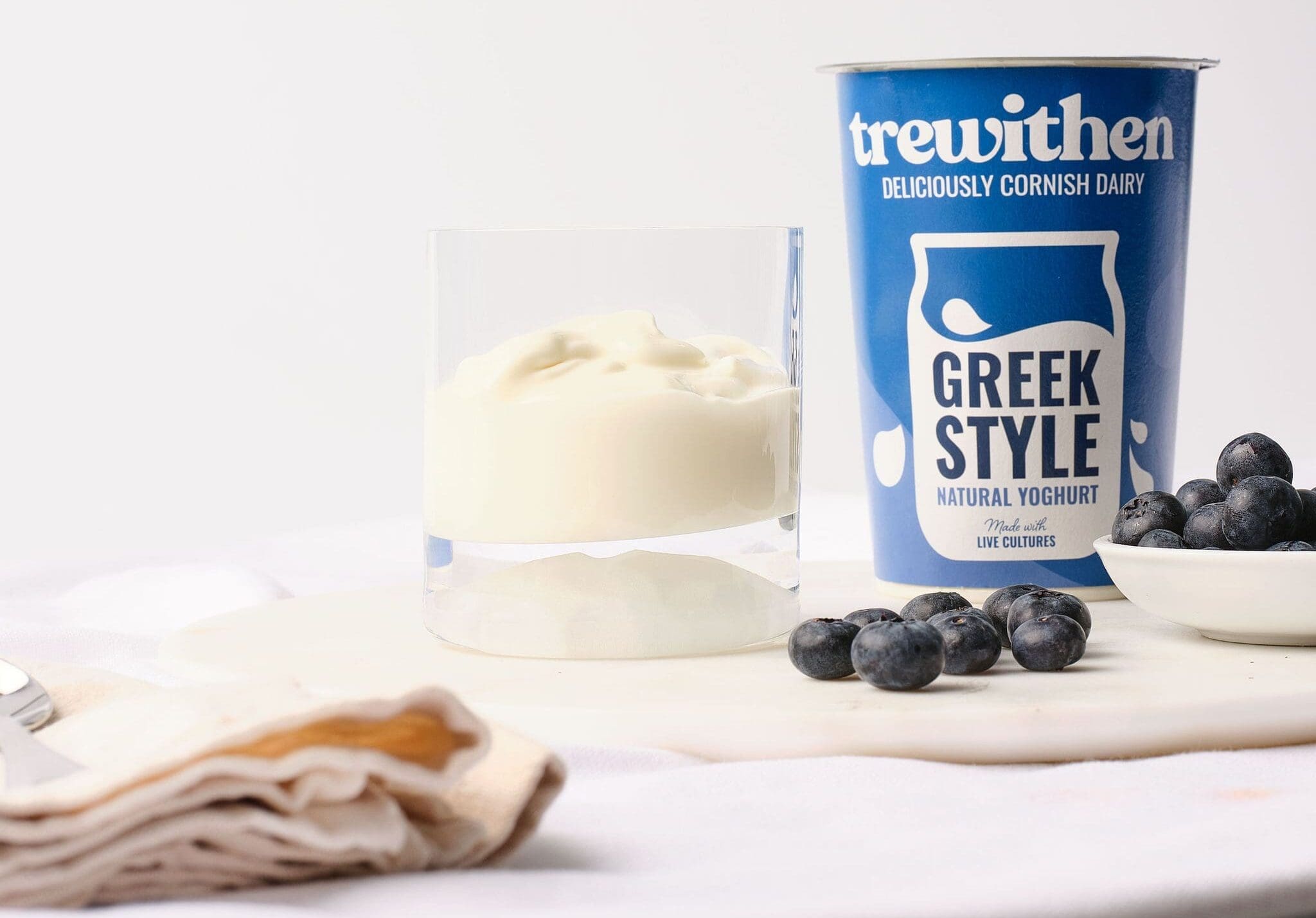Have you ever wondered about the health benefits hiding within that creamy tub of natural yoghurt in your fridge? You’re not alone. As more people turn to functional foods to boost their well-being, natural yoghurt has stepped into the spotlight as a potential probiotic powerhouse. But are all natural yoghurts created equal when it comes to those beneficial bacteria? In this post, we’ll explore whether natural yoghurt is a probiotic, and uncover whether your favourite breakfast staple is serving up the gut-friendly benefits you’re after.
Table of Contents
What Are Probiotics?
Probiotics (also known as ‘good bacteria’) are commonly found in fermented foods like yoghurt, kefir, sauerkraut, and kimchi, as well as in dietary supplements. They are believed to support digestive health, boost the immune system, and may play a role in preventing or treating certain conditions like diarrhoea and other digestive disorders.
Definition of Probiotics
A probiotic is a type of live microorganism, usually bacteria or yeast, that can provide health benefits when consumed in adequate amounts. These beneficial microbes are often referred to as “good” or “friendly” bacteria because they help maintain or restore the natural balance of microorganisms in the gut, where the majority of the body’s immune cells reside.
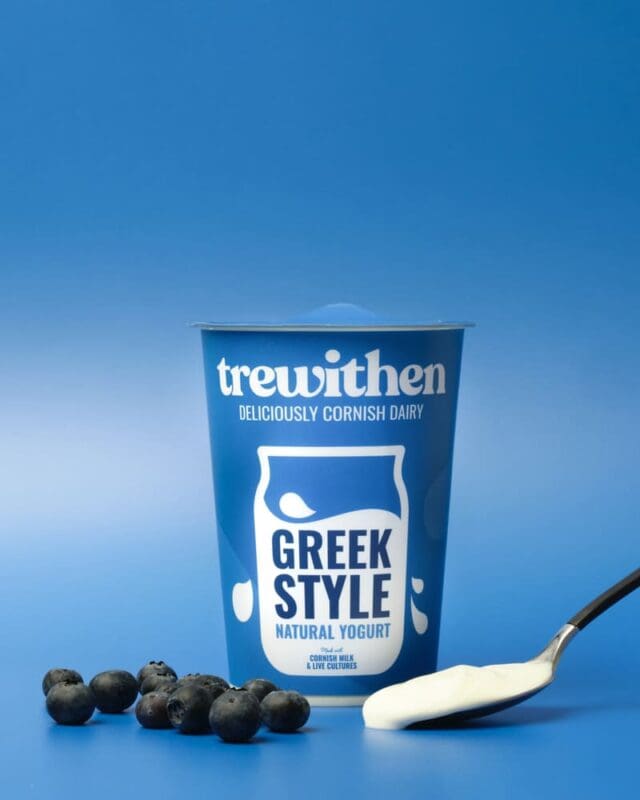
The Role of Probiotics in Gut Health
Probiotics are like the unsung heroes of your gut, working behind the scenes to keep everything running smoothly. These tiny, live microorganisms play a powerful role in maintaining a healthy balance in your digestive system. When your gut flora is in harmony, you’re more likely to feel energised, digest food better, and fend off unwanted intruders like bad bacteria and viruses.
Probiotics help bolster your gut’s defence system, making it easier for you to absorb nutrients and maintain a strong immune system. They’re not just about digestion—they’re about creating a thriving environment in your body that supports everything from your mood to your immune response. Whether you’re enjoying them through delicious fermented foods or taking them as supplements, probiotics are essential allies in promoting gut health and overall well-being.
Natural Yoghurt: A Closer Look
Natural yoghurt typically contains probiotics. Live bacteria, such as Lactobacillus and Bifidobacterium, are added during the fermentation process, which transforms milk into yoghurt. However, it’s important to check the label, as not all yoghurts contain live and active cultures; some may have been heat-treated after fermentation, which can kill the beneficial bacteria.
What Qualifies as Natural Yoghurt?
To qualify as ‘natural yoghurt’, the yoghurt must be made from milk (usually cow’s milk, but can also be from goats, sheep, or other animals’ milk). It must also contain live and active cultures which ferment the milk, producing lactic acid which gives yoghurt its characteristic tangy flavour and thick texture. The production process should involve minimal processing beyond the fermentation of milk, and should not contain added sweeteners, artificial flavours, colours, or preservatives.
The Yoghurt-Making Process
The journey from milk to yoghurt is a fascinating blend of science and age-old dairy artistry. It begins with the gentle heating of milk, a process that sets the stage for transformation by eliminating unwanted bacteria and coaxing milk proteins into a more receptive state.
Once cooled to a bacteria-friendly temperature, the real magic begins as specially selected yoghurt cultures are introduced. As they feast on the milk’s natural sugars, they produce lactic acid, gradually thickening the milk and infusing it with that distinctive tangy flavour yoghurt fans love. This fermentation process, carefully monitored over several hours, transforms the liquid milk into a creamy, probiotic-rich treat.
The final cooling step halts the fermentation, preserving the yoghurt’s perfect balance of taste and texture, ready to be enjoyed on its own or as a versatile ingredient in countless culinary creations.
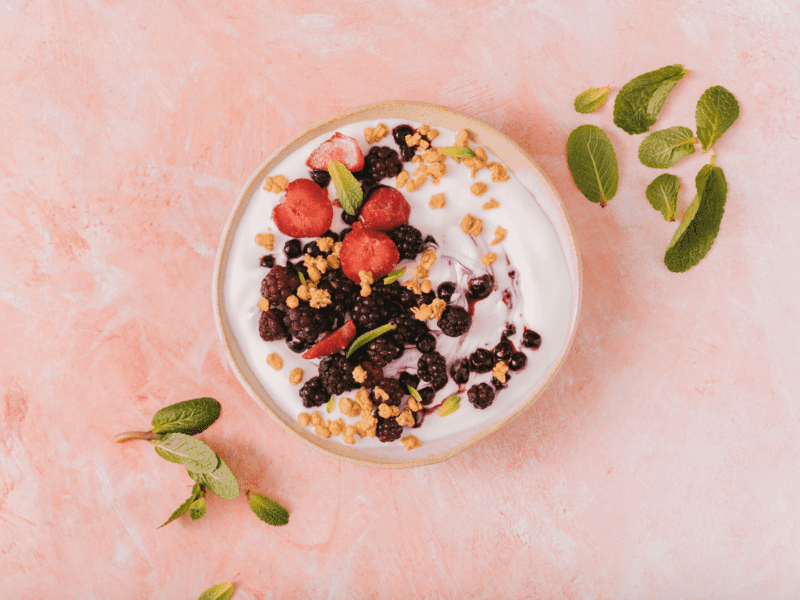
Is All Natural Yoghurt Probiotic?
While all yoghurt starts with live cultures, not all natural yoghurts qualify as probiotics. The probiotic status depends on the specific strains used, their quantity, and their survival through processing and storage. In some countries, yoghurt must contain live cultures to be called yoghurt, but this doesn’t automatically make it probiotic. In the UK, to be labelled a probiotic, yoghurt must contain specific strains of bacteria in sufficient quantities that have been proven to offer health benefits.
Live vs Heat-Treated Yoghurt
Heat treatment after fermentation can kill live cultures. Improper storage conditions may also reduce the number of live bacteria. While heat-treated yoghurt still retains many of the nutritional benefits of yoghurt, such as protein and calcium, it lacks the potential probiotic advantages of live cultures.
Which Kind of Yoghurt Has the Most Probiotics
The level of probiotics in yoghurt can vary widely depending on several factors.
- Greek Yoghurt Greek-style yoghurt often has the highest probiotic content due to its straining process, which concentrates the bacteria.
- Added Probiotics: Some brands specifically add extra probiotic strains, potentially increasing the overall probiotic content.
- Plain Yoghurt: Natural yoghurt generally contains more live cultures than flavoured varieties, as added sugars and fruits can affect bacterial survival.
- Kefir: Kefir isn’t technically a yoghurt, but it is similar to yoghurt in its presentation and taste. Kefir often contains a wide variety and a higher number of probiotic strains than traditional yoghurt
Reading Labels: What to Look For
Not all yoghurt is considered probiotic, and you have to read the labels and understand what the different terms mean to decipher the health-giving properties of your chosen yoghurt-y treat. More isn’t always better – the effectiveness of probiotics also depends on the specific strains and your individual health needs.
Look for the phrase “contains live and active cultures” as a starting point, but don’t stop there. The most probiotic-rich yoghurts will list specific bacterial strain names, such as Lactobacillus acidophilus, Bifidobacterium bifidum, or Lactobacillus casei. Pay attention to the quantity of probiotics, often measured in colony-forming units (CFUs) – the higher the number, the more potentially beneficial bacteria. Also check for the absence of added sugars and artificial additives, as these can potentially impact the survival of probiotics.
Health Benefits of Probiotic Yoghurt
Claims about the health benefits of consuming probiotics are vast. There is some evidence that they may be helpful for some digestive conditions including irritable bowel syndrome, but the NHS says that while some of the health benefits are well-documented, others require additional studies to be established.
Digestive Health Improvements
Probiotics can help support the good bacteria in your digestive system, which may improve digestion and relieve symptoms of gastrointestinal disorders like bloating, diarrhoea, and constipation. One scientific study states “There is substantial evidence to support probiotic use in the treatment of acute diarrhoea diseases, prevention of antibiotic-associated diarrhoea, and improvement of lactose metabolism, but there is insufficient evidence to recommend them for use in other clinical conditions”.
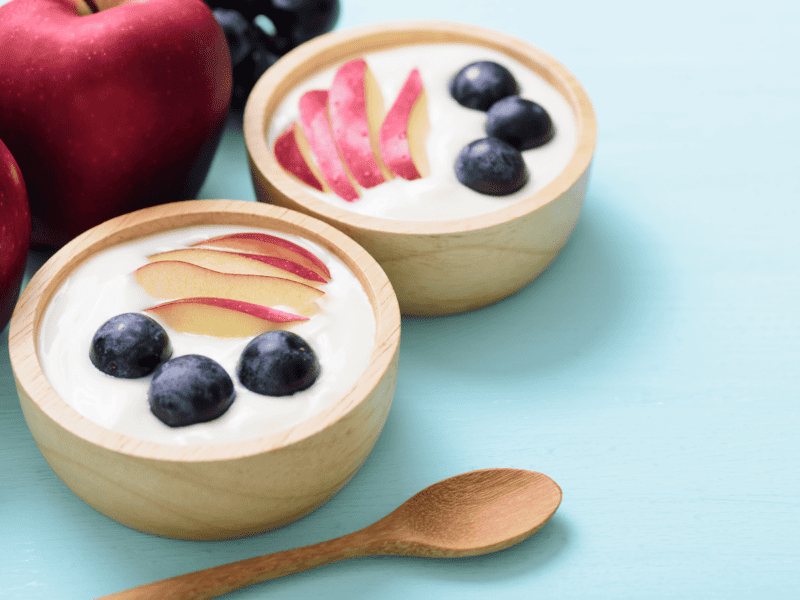
Immune System Support
Probiotics interact with and enhance our body’s defences through a combination of several mechanisms. They help to maintain the integrity of the intestinal lining (which is a crucial physical barrier against pathogens), they promote anti-inflammatory cytokines (which helps to maintain a balanced immune response), and many probiotic strains also produce substances that directly inhibit the growth of pathogenic bacteria. Which is reason enough for us to keep enjoying lashings of the creamy white stuff!
Other Potential Health Benefits
There is a reason why the phrase ‘butterflies in my tummy’ exists and we feel nauseous when we’re nervous. The link between the gut and the brain has always been strong, but now emerging research suggests that there is a strong gut-brain connection and the brain certainly affects the stomach and digestion. Probiotics can potentially influence mood and mental health, and some studies indicate probiotics may also help reduce symptoms of anxiety and depression. So enjoy some natural yoghurt with your breakfast for a bright, healthy start to your day!
Natural Yoghurt vs. Probiotic Supplements
Natural yoghurt offers a creamy, tangy delivery system for beneficial bacteria, wrapped in a nutritional powerhouse of protein, calcium, and other essential nutrients. It’s a whole food that nourishes as it nurtures your microbiome, with the added benefit of being a versatile culinary staple.
Probiotic supplements promise a more targeted approach, often boasting higher concentrations of specific bacterial strains and the convenience of a daily capsule. These concentrated doses can be particularly appealing for those seeking to address specific health concerns or for individuals who don’t consume dairy. However, supplements lack the additional nutritional benefits and the simple pleasure of enjoying a delicious food.
Ultimately, the choice between yoghurt and supplements may come down to personal preference, dietary needs, and health goals – but there’s no rule saying you can’t enjoy the best of both worlds in your quest for a happy, healthy gut.
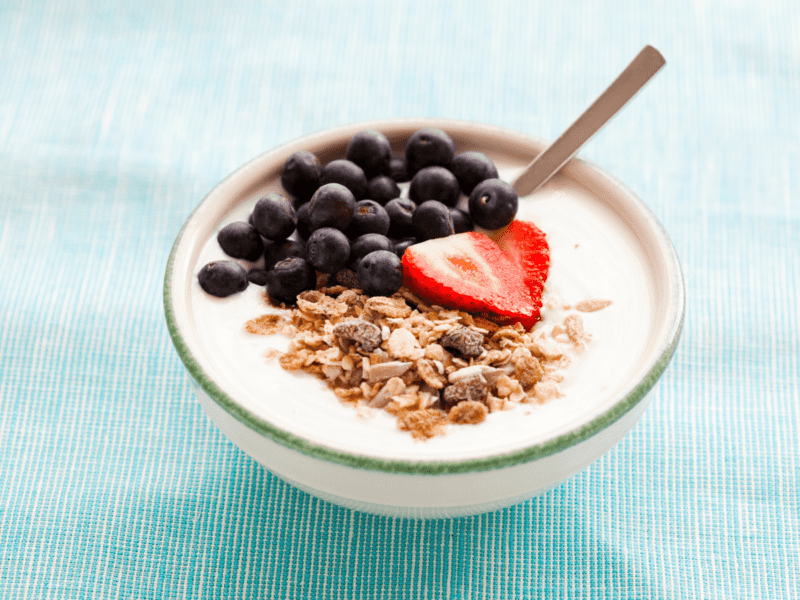
How to Choose Probiotic-Rich Natural Yoghurt
Choosing a probiotic yoghurt can sometimes be confusing as you navigate a labyrinth of health claims and scientific jargon, but armed with the right knowledge, you can make an informed decision. By considering these factors, you’ll be well-equipped to choose a probiotic yoghurt that not only tantalises your taste buds but also nurtures your gut health.
- Shop Local and Choose Natural At Trewithen Dairy, we and our farmers are passionate about the health and welfare of the cows that produce the essential ingredient in all our great-tasting dairy products – high-quality, Cornish milk. Thick, rich and creamy with a distinctively luxurious taste, we are proud that our indulgent Trewithen Dairy natural yoghurt is bio-live and a source of protein.
- Read the Label Start by scanning the label for the phrase “contains live and active cultures,” which is your first clue to probiotic content. Look for specific strain names like Lactobacillus acidophilus, Bifidobacterium bifidum, or Lactobacillus casei.
Best Storage and Consumption Practices
To reap the maximum probiotic benefits from natural yoghurt, proper storage and consumption practices are key.
- Always keep your yoghurt refrigerated at or below 5°C to maintain the viability of its live cultures. Avoid leaving it out at room temperature for extended periods, as this can lead to bacterial overgrowth and spoilage.
- It’s best to consume yoghurt before its expiration date, as probiotic levels tend to decline over time, even in proper storage conditions. For optimal probiotic intake, enjoy your yoghurt raw rather than cooking with it, as heat can destroy live cultures.
- Consider eating it on an empty stomach or before meals to potentially enhance probiotic absorption. Pairing yoghurt with prebiotic-rich foods like bananas, oats, or honey can create a synbiotic effect, providing both the beneficial bacteria and the fuel they need to thrive.
- If you want to discover some delicious ways to enjoy the benefits of natural yoghurt, why not take a look at our natural yoghurt recipes page and get creative?
Conclusion: The Probiotic Power of Natural Yoghurt
Natural yoghurt stands as a testament to the remarkable synergy between ancient food wisdom and modern nutritional science. This creamy, tangy delight not only pleases the palate but also serves as a potent probiotic powerhouse, offering a myriad of health benefits that extend far beyond basic nutrition. From supporting digestive health and boosting immunity to potentially influencing mental well-being, the live cultures in yoghurt work tirelessly as microscopic health ambassadors within our bodies.
In a world increasingly focused on preventative health and natural remedies, natural yoghurt emerges as a simple yet powerful ally in our quest for overall wellness, proving that sometimes, the most effective health solutions are also the most enjoyable.
